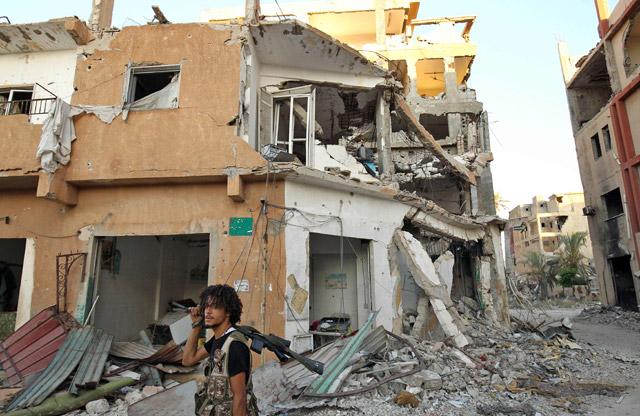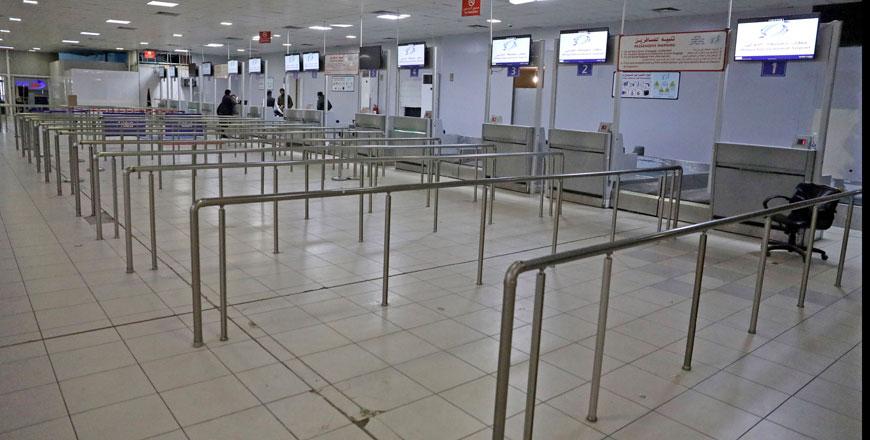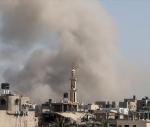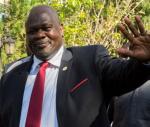You are here
Suffering grows from Libya conflict, militants exploit chaos
By Reuters - Apr 09,2019 - Last updated at Apr 09,2019
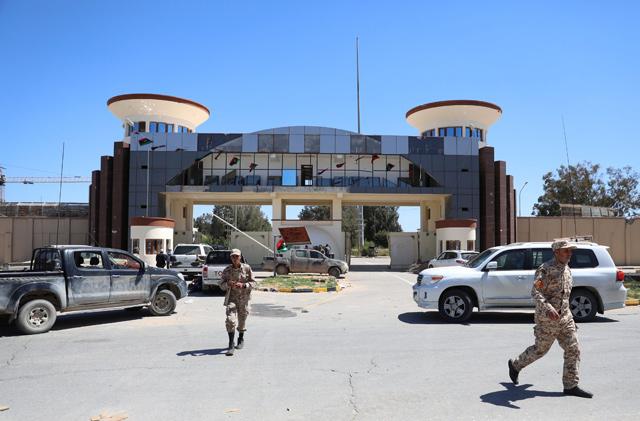
Members of Misrata forces, under the protection of Tripoli's forces, are seen at a military camp in Tripoli, Libya, on Tuesday (Reuters photo)
TRIPOLI/GENEVA — Casualties from the battle for Libya's capital mounted on Tuesday while Daesh killed three people in a desert town, illustrating how terrorists may exploit renewed chaos.
Medical facilities reported 47 people killed and 181 wounded in recent days as eastern forces seek to take Tripoli from an internationally-recognised government, the World Health Organisation (WHO) said.
The fatalities were mainly fighters, although they also comprised nine civilians including two doctors, the WHO said.
The eastern Libyan National Army (LNA) forces of Khalifa Haftar — a former general in ousted strongman Muammar Qadhafi's army — seized the sparsely populated but oil-rich south earlier this year before heading towards Tripoli this month.
They are fighting on the southern side of the city, where witnesses said on Monday afternoon the LNA had lost control of a former airport and withdrawn down the road.
The government of Prime Minister Fayez Al Serraj, who has run Tripoli since 2016 as part of a UN-brokered deal that Haftar boycotted, is seeking to repel the LNA with the help of armed groups from Misrata.
Serraj's forces carried out an air strike on an LNA position in the suburb of Suq Al Khamis on Tuesday, a resident and an eastern military source said, without giving more details.
The renewed conflict threatens to disrupt oil supplies, boost migration across the Mediterranean to Europe and scupper UN plans for an election to end rivalries between parallel administrations in east and west
A UN-sponsored peace conference, scheduled to start on Sunday in the south-western town of Ghadames, looked sure to be postponed. "I will work with all my might to hold Libya's national conference as soon as possible... when the conditions for success are in place," UN Envoy Ghassan Salame said.
The United Nations, United States, European Union and G-7 bloc have appealed for a ceasefire, a return to a UN peace plan, and a halt to Haftar's push.
Far south of Tripoli, the Daesh group claimed responsibility for attacking the town of Fuqaha, where residents said three people were killed and another kidnapped.
Fuqaha is controlled by fighters loyal to Haftar, who casts himself as a foe of Islamist extremism though he is viewed by opponents as a new dictator in the mould of Qadhafi.
Daesh has been active in Libya in the turmoil since the Western-backed overthrow of Qadhafii eight years ago. It took control of the coastal city of Sirte in 2015 but lost it the following year to local forces backed by US air strikes, and now operates in the shadows.
The attack on Fuqaha indicated Daesh may be looking to exploit gaps left by movements of Haftar's troops.
On Monday, a warplane took out Tripoli's only functioning airport, and the number of displaced people — 3,400 at the last UN count — is mounting alongside the casualties.
"There are fears that the civilian death toll will rise rapidly as the fighting intensifies and spreads into more densely populated parts of the city," said Amnesty International's regional deputy, Magdalena Mughrabi.
Libya has become the main conduit for African migrants and refugees trying to reach Europe, many of whom suffer torture, rape and extortion on their journeys.
Those who manage to board a boat to Italy risk drowning or being sent back into detention in inhumane conditions, according to the UN migration agency, which estimates twice as many die in the Sahara Desert as in the Mediterranean.
UN agencies say some 5,700 refugees and migrants are trapped in detention centres in conflict areas, and fear some may be used as human shields or forcibly recruited.
"They tell us they can hear the clashes. Many are really scared," UN refugee agency UNHCR spokesman Babar Baloch said.
Libyan state oil firm NOC called on the warring parties to keep oil fields safe and allow production to continue, a company statement said on Tuesday.
The LNA says it has 85,000 men in an army analysts believe has been swelled by Salafist fighters and tribesmen as well as Chadians and Sudanese from over the southern borders. Its elite Saiqa (Lightning) force numbers some 3,500, LNA sources say.
The UN-backed Prime Minister Serraj, 59, received calls from Italian Prime Minister Giuseppe Conte and France's President Emmanuel Macron on Monday to discuss the crisis.
Salame is staying in Libya, a spokesman said, though some staff at his mission went on leave and administrative personnel will work temporarily from Tunisia.
Related Articles
CAIRO — The head of Libya's UN-backed government will hold talks in Paris this week with a powerful military commander who has so far reject
TRIPOLI/BENGHAZI, Libya — A warplane attacked Tripoli's only functioning airport on Monday as eastern forces advancing on the Libyan capital
ROME — Russia will seek to end an arms embargo against Libya and could supply weapons to Khalifa Haftar, whose forces support a rival admini


